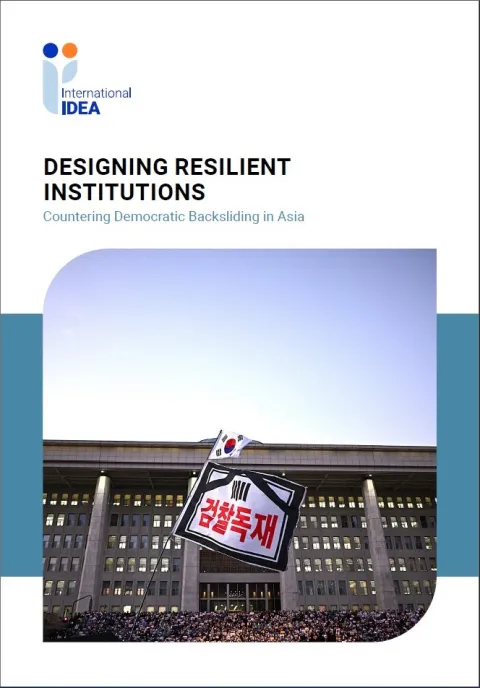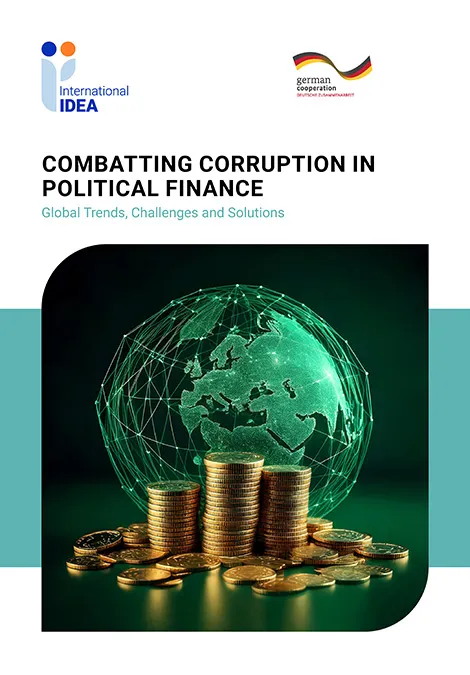Como indicaba Daniel Zovatto en enero de 2015, América Latina comenzó el año en medio de una fuerte desaceleración económica, con miras a tres procesos electorales presidenciales (Argentina, Guatemala y Haití) y seis 6 elecciones municipales y parlamentarias (Colombia, El Salvador, Haití, México, Paraguay y Venezuela), la atención puesta sobre la fase final de la negociación de los Acuerdos de Paz de Colombia y, sobre todo, la necesidad de generar profundas reformas estructurales dirigidas a
Search
Region
Country
Type
Como indicaba Daniel Zovatto en enero de 2015, América Latina comenzó el año en medio de una fuerte desaceleración económica, con miras a tres procesos electorales presidenciales (Argentina, Guatemala y Haití) y seis 6 elecciones municipales y parlamentarias (Colombia, El Salvador, Haití, México, Paraguay y Venezuela), la atención puesta sobre la fase final de la negociación de los Acuerdos de Paz de Colombia y, sobre todo, la necesidad de generar profundas reformas estructurales dirigidas a
This year brought about a long-awaited general election in Myanmar, and a new constitution in Nepal, which was contested from the outset.
In 2016, International IDEA will be starting its operations in the wider-Europe region. This strategic shift reflects the geopolitical developments of the past years, in which European democracies, both established and emerging, have been going through turbulent changes.
International IDEA’s Africa Programme has gone through major changes during 2015 to better respond to increased demand in the region. In January, the office moved from South Africa to Addis Ababa, Ethiopia and in April, Adebayo Olukoshi took over as the new Regional Director.
We have hired several new programme officers and staff to better meet the needs of Member States and other countries in the region that have requested International IDEA’s help.
Varios años de auge exportador impulsaron el crecimiento económico, contribuyeron a la continua reducción de la pobreza y a la expansión de los servicios sociales. Ello hacía presagiar, hasta hace no mucho tiempo, que este decenio sería “la década” de América Latina.
Results management can be crucial to the progress of democracy assistance projects and programs, particularly when applied in ways that are inclusive, contextualized and sensitive to local partners’ space for learning and ownership.
However, there appears to be a tendency among funders to push for applications that focus on upward accountability and control to ensure value for money
The Africa Programme and the Netherlands Institute for Multiparty Democracy (NIMD) are hosting the Conference on Political Parties in a Fast Changing, Technology Driven Environment, in Addis Ababa from 10-12 December.
Starting today, staff of the Independent Electoral Commission of Lesotho (IEC) will meet up in Maseru for a five-day BRIDGE workshop on civic education and voter information. The workshop takes place in the context of and forms a platform for discussing the IEC’s increased engagement in this regard.
In their follow-up report presented on 3 December, International IDEA and UCAB regret that the recommendations presented by the Study Mission at the beginning of the campaign, aimed at overcoming the weaknesses in the system and the electoral process, have not been heeded.
Launching of a vigorous campaign to publicize voting secrecy, guaranteeing effective conditions of fairness for all political organizations, strengthening international observation and lifting the state of emergency in place in border states, are the main recommendations in the Study Mission’s proposal to Venezuelan government authorities.
Mongolia, which this year celebrated the 25th anniversary of its transition to democracy, presented the priorities for its new role as 2016 Chair of International IDEA under the theme of "Learning from Democratic Transitions." This focus draws on the country’s rich experiences of building democratic institutions and strengthening democratic values.
While risk management has been an integral part in the business sector for decades the practice remains rare when it comes to electoral management bodies (EMBs).
In a recent survey commissioned by International IDEA only 18 out of 89 countries said they had formal electoral risk management procedures in place while 35 countries reported not having any electoral risk management procedures at all.
When introducing or using information and communications technologies (ICTs) in elections, electoral management bodies (EMBs) usually need to assure themselves and other stakeholders that a given technical solution is going to work—that is, that it fulfils legislated requirements, is secure and trustworthy, is of high quality, and will perform as expected.
Esta investigación presenta un diagnóstico sobre la situación de las mujeres en el interior de los partidos políticos en América Latina.
Many Asian countries are experiencing a commercialization of politics which translates into a sense of rising overall costs for campaigning. State funding is often marginal (or even non-existent) and candidates without sufficient resources at their disposal find it hard to compete, since their parties often do not finance their candidates’ campaigns.
Free, fair and credible elections are the centrepiece of any democracy and electoral management bodies (EMBs) are often the organizations tasked with putting theory into practice when organizing elections.
The challenges they face might vary from logistical, technical and practical to security issues, low participation and making sure everyone accepts the outcome of the elections. And examples of both failed and successful solutions are many.


